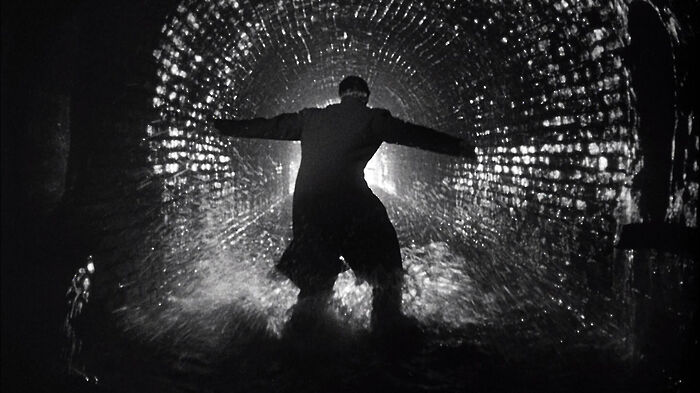In memoriam: The mercy of Jóhann Jóhannsson
Heartbroken by the loss of one of the finest film composers of our time, Lillian Crawford reflects on a short but mighty career

Many of Jóhann Jóhannsson’s scores feel unfinished, stimulating a desire for continuation and eventual resolution that never comes. Emerging in the cinematic world in 2013 with Denis Villeneuve’s Passengers, it seems that just as the composer himself was gaining prominence, he has been snatched away from us. Unique in his ability to ensnare sublimity and marry it with the screen, Jóhannsson’s death is one that bears a sorrow only he was capable of creating.
The Icelandic composer’s scores do not make for easy listening, his latest music for The Mercy captured a raw sense of existential dread both unsettling and profoundly moving. Rather than crafting standalone albums, Jóhannsson could blend notes into a scene so deftly that they would become a natural part of the landscape.
His projects have all been challenging in tone, the prevalence of loss in Arrival or even The Theory of Everything made all the more heart-wrenching when drawn from the depths of a piano and orchestra. Listening to those scores now holds a significance of almost unbearable sadness, merging to form a shattering self-written requiem.
Villeneuve has proved instrumental in Jóhannsson’s short filmography, and when it was announced that Hans Zimmer and Benjamin Wallfisch would be taking over for Blade Runner 2049, it seemed impossible to imagine it without him. Zimmer’s throbbing horns suit the dystopian landscape perfectly, and while likely more similar to Vangelis’s original score, one cannot help but wonder what a difference Jóhannsson could have made.
The used soundtrack never captures the beauty and heartache of the saxophone-infused ‘Love Theme’, while the stirring capabilities of Jóhannsson’s own ‘The Whirling Ways of Stars that Pass’ from The Theory of Everything might suggest he can derive a greater melancholy than anything Zimmer has produced. And if anyone could doubt his abilities in the realm of sci-fi, one need only hear Arrival’s ‘Heptapod B’ to put those concerns to rest.
“Jóhannsson’s score rips open the heart of the film and leaves the viewer in pieces”
Jóhannsson also worked on mother! with director Darren Aronofsky, initially as a score composer and later as a sound consultant. His mark on the film is unmistakable, and the soundscape instilled in the workings of the piece one of its strongest qualities. The flicking strings of the original trailer might give some indication of the style Jóhannsson had pursued, using his typical plays on dissonance to induce fear rather than melancholy. While both of these scores for now seem lost, it can only be hoped that they are released to our ears in the near future as further cementation of a deserved legacy.
Indeed, Jóhannsson’s career is not yet over. Completed scores for both Mandy and Mary Magdalene will be released later this year, the former likely to play to the thrilling aspects of his Sicario soundtrack, the latter an epic religiosity as of yet unheard.
There is further a host of solo work produced prior to the composition of his scores, most stirringly his final studio album, Orphée. Inspired by Ovid, the opening ‘Flight from the City’ bears great similarity to his scores for James Marsh’s films, a prominent minimalist piano accompanied by pining strings that flow underneath with exquisite texture. The remainder shifts from haphazard waltzes to cracking vocals, each providing for poignant reflections on the beginnings of life, and the endings of death.
Watching Marsh’s The Mercy, released last Friday, has adopted a devastating significance already harrowing. While playful in places such as ‘Boating for Beginners’, Jóhannsson’s score rips open the heart of the film and leaves the viewer in pieces. Often just as striking is the use of silence, a masterclass in sound contrast with Donald Crowhurst’s descent into madness aboard the Teignmouth Electron. For all that Colin Firth and Rachel Weisz do, one cannot deny that the tears running down both cheeks are the product of Jóhannsson’s most affecting score.
This week marks a sore cinematic tragedy, leaving us with a handful of magnificent soundtracks which had provided hope for many more to come. Having already written three for the early months of 2018 alone, it would seem that Jóhannsson had only just begun to see his career truly take off. With two Academy Award nominations and a much-deserved Golden Globe for The Theory of Everything, he had already defined himself as one of the foremost contemporary film composers, and it can only be hoped that his place in 2010s cinema will be upheld for many years to come.
Putting on a Jóhannsson score today feels harder than it did before, resonating in new unwanted ways. Cinema will be less emotive without him, the overcrowded business lacking its most original voice. Here is to Jóhann Jóhannsson, the man that made us feel in a cold and heartless world
 News / Clare Hall spent over £500k opposing busway 24 December 2025
News / Clare Hall spent over £500k opposing busway 24 December 2025 Comment / The ‘class’ of Cambridge24 December 2025
Comment / The ‘class’ of Cambridge24 December 2025 News / Eight Cambridge researchers awarded €17m in ERC research grants27 December 2025
News / Eight Cambridge researchers awarded €17m in ERC research grants27 December 2025 News / Caius mourns its tree-mendous loss23 December 2025
News / Caius mourns its tree-mendous loss23 December 2025 Comment / League tables do more harm than good26 December 2025
Comment / League tables do more harm than good26 December 2025









